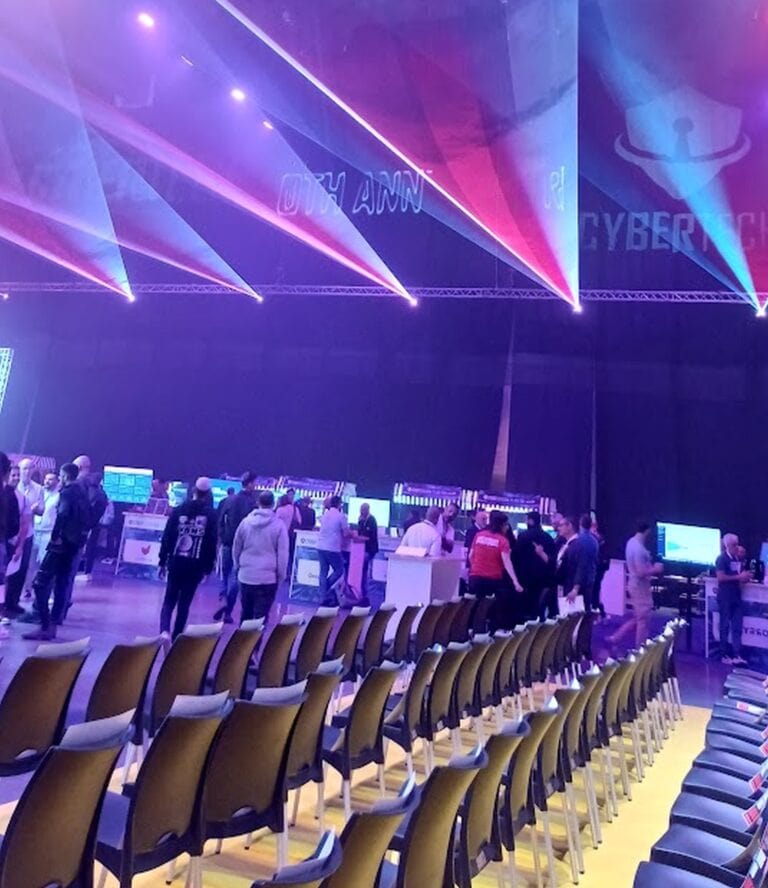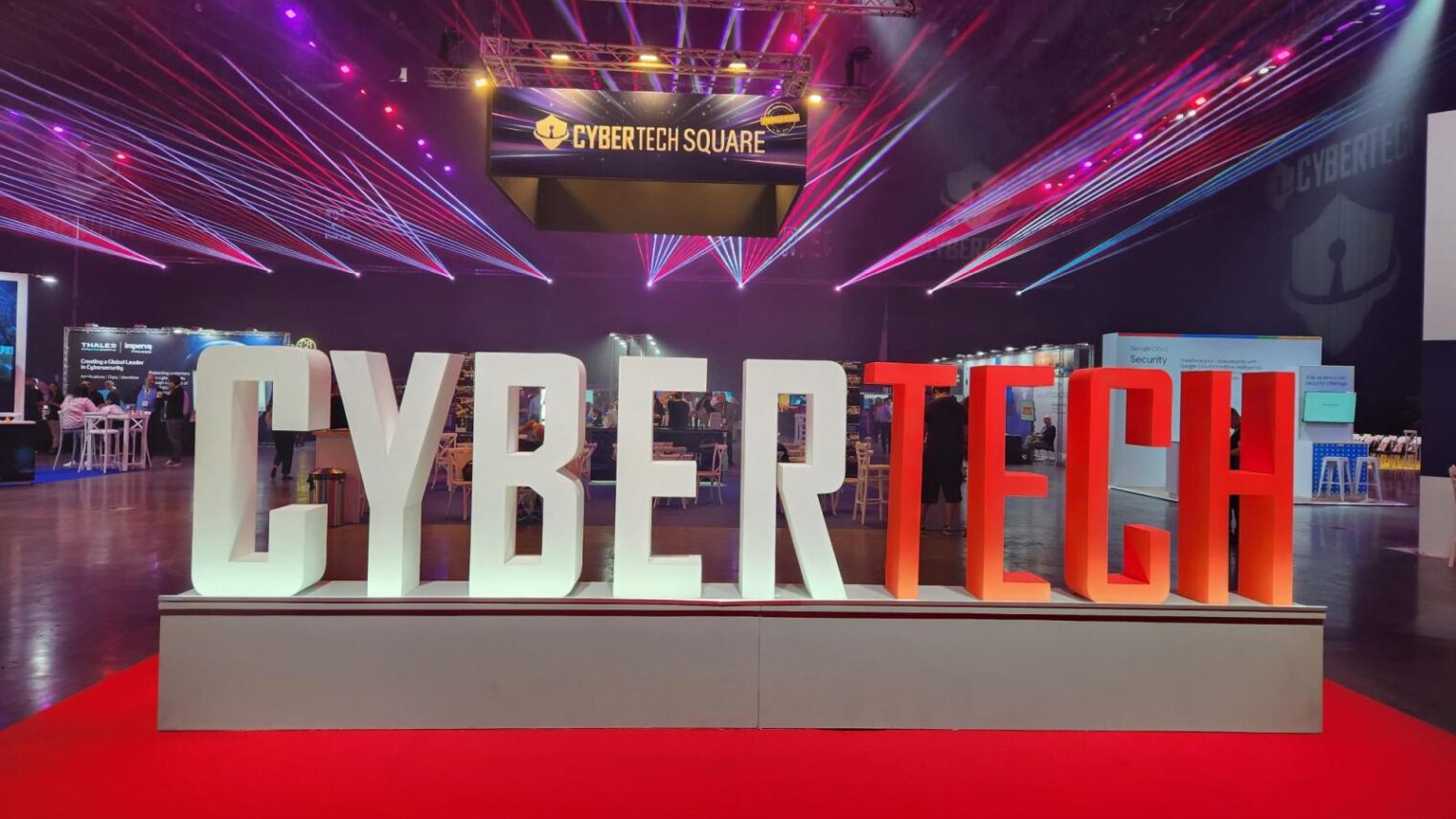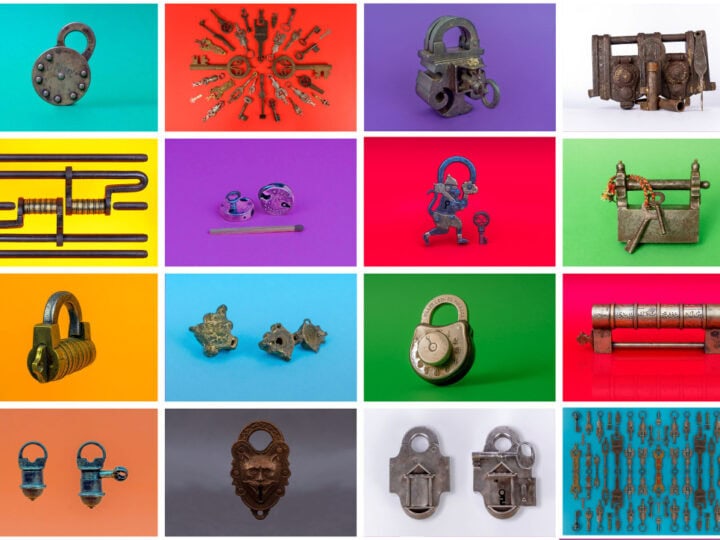Israel’s cyber security industry is fast approaching maturation, and there’s no better time for that to happen. After October 7, followed by Iran’s massive attack on Israel on Saturday, and tensions escalating between nations, the threat of increasingly sophisticated cyberattacks are as serious as they’ve ever been.
Last week’s Cybertech Israel conference provided a microcosm of the industry’s evolution. The show floor — which was, relative to other post-October 7 events in Israel, bustling — was populated by numerous booths and tables, each one populated by another interesting startup promising to offer the greatest cybersecurity solutions that any company, government office or organization could want.
The low-lit exposition hall was filled with light fog, a constant array of dazzling lasers and a general sense of confidence which seemed to communicate one unanimous message: “Hello companies, government offices and organizations — we know you want us.”

That sense of confidence is far from off-base. IVC research data shows that Israeli cyber exits reached $985 million in the initial quarter of 2024, and set a new record in 2023, with exits surpassing $7.1 billion, marking a 65% surge on 2022 and a 22.5% rise on 2021.
The more swords there are, the more shields you need
“There’s definitely been a lot more demand for cybersecurity lately, thanks to increased cyber instability,” noted a representative from Sikreta, a startup dedicated to performing thorough penetration testing for its users.
The company has been approached by an increasing number of clients who want to make sure that their networks can’t be broken into, and they’re willing to pay to make sure of it.
“There’s been a lot more phishing and website hacks — mostly Iranian,” Sikreta’s rep noted.
Indeed, this claim is backed by a recent report from cybersecurity sector leader Check Point. According to the company, there has been a doubling of cyberattacks from Iran against Israel in the past week alone. These attacks, exceeding 4,000 in number, targeted a range of entities including local authorities and academic institutions.
While the Islamic Republic’s bombardment on April 14 accomplished very little in terms of damage in Israel, their continued pressure on Israel’s cyber defenses is nothing to sneeze at.
For example, on the same day of Iran’s first direct assault on Israel in the physical realm, an Iranian hacker group named Handala announced that it had hacked Israeli radar systems, sending 500,000 threatening text messages to Israelis. Incidents such as this have kept Israeli cybersecurity engineers and developers in a state of constant alert.
While this is certainly a cause for anxiety on one hand, that same vigilance has also resulted in a remarkably effective, experienced and advanced cybersecurity industry on the other.
Pressure makes diamonds
Cyber breaches, threats and attacks are nowhere near exclusive to Israel (though the country was the number one target for cyber attacks in 2023). Other countries around the world have also reported increases in nefarious cyber activity, but it seems as though many of them are turning to Israel for solutions, thanks to its necessity-borne expertise.
The Israeli startup Claroty serves as evidence of this. Positioned as a unicorn in the cybersecurity sector, the company is valued at $2.5 billion, having recently raised $100 million in funding and credit, as well as announcing an upcoming initial public offering on a major American stock exchange — either NASDAQ or NYSE.
Other Israeli companies sharing similar success include Cyera, which recently announced a fundraising round of $300 million; Gem Security, which was sold for approximately $350 million last month; and Noname Security, which is expected to be sold for close to $500 million.
Considering the slowdown that’s hitting the global economy and the local high-tech industry, these companies’ stellar performances stand as a testament to the market demand for Israeli cybersecurity solutions.
The bigger the toolbox, the better
Another key factor suggesting cyber’s maturation is the growing desire for a suite of services that span several security verticals.
“We felt a shift in the global market more than 6 months ago from a more focused approach to a much wider approach,” noted one Cybertech attendee.
Rather than a focus solely on niche solutions or specialized services, investors and clients alike are now leaning towards companies that offer a comprehensive suite of cybersecurity services at a consistently high standard.
As the attendee put it: “The market doesn’t want a commando knife; it wants a Swiss army knife.”
This may spell difficulty for young companies that founded themselves as masters of a single cyber niche before they had time to read the industry tea leaves.
At the same time, however, the shift means that well-established companies which are already positioned to give a wide array of services are well-positioned to grow, and to start buying up smaller companies offering those niche solutions, incorporating them into their cyber service suites.

















